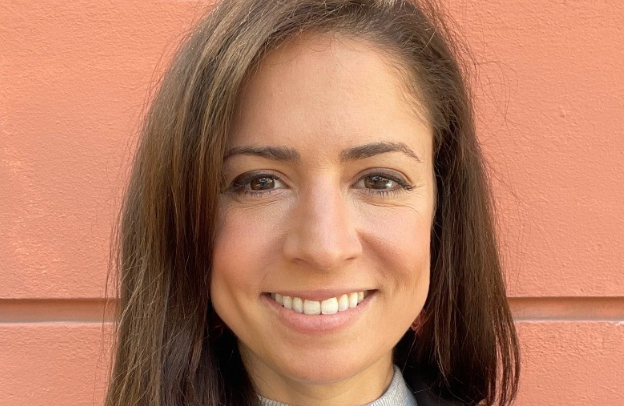Strategic Partnerships and B2B Marketing: Unlocking Global Business Success for Entrepreneurs – Victoria Brito

Have you ever wondered what it takes to turn your small business into an international success story? Or how some entrepreneurs seem to navigate global markets with ease, securing valuable partnerships that propel their ventures forward? The secret often lies in one thing: strategic partnerships.
Learn How to Leverage Your Story through our Story To Asset Framework.
For African diaspora entrepreneurs, expanding your business beyond borders can be a thrilling yet challenging journey. These and more are what we are going to be learning about today, inspired by Victoria Brito’s insight as a guest on the Obehi Podcast.
Whether you’re based in the U.S., Europe, or elsewhere, building strong relationships across cultures is key to scaling your impact. But how do you do this in a way that is not only sustainable but also authentic to your identity and values?
See the full video
In an article published by the International Institute for Management Development (IMD), Professor of Strategic Management, James Henderson writes, “Alliances and partnerships have always been part of human history in all areas of life—from private to public, from politics to business.”
His words highlight a timeless truth: collaboration has long been a driving force behind progress and success across every sector.
In today’s global economy, the African diaspora is a rapidly growing force. According to the World Bank, remittances from the African diaspora reached a record $87 billion in 2020, reflecting the immense economic power of African entrepreneurs living abroad.
But beyond the financial contributions, diaspora entrepreneurs have the potential to bridge continents, cultivate cross-cultural partnerships, and revolutionize industries worldwide.
In this article, we will explore how strategic partnerships and effective B2B marketing can help you, as a diaspora entrepreneur, tap into these global opportunities and fuel long-term success.
The Power of Strategic Partnerships: Building Bridges Across Borders
Strategic partnerships are often the key to unlocking international markets. But what exactly does a strategic partnership mean? Simply put, it’s a collaboration between two or more businesses that combine their strengths to achieve shared goals. For African diaspora entrepreneurs, this means not just finding customers but creating long-lasting relationships that help you scale across borders.
See also How Indigenous Knowledge Systems Can Strengthen the African Diaspora
Consider the story of Victoria Brito, a leading expert in strategic partnerships and B2B marketing. Having worked with clients across Europe and North America, she knows firsthand how crucial partnerships are for growth.
“The key to success in international markets lies in finding partners who complement your strengths and understand your vision,” she says. “These relationships are not just about transactions—they’re about building trust and creating something bigger together.”
But how do you begin building such relationships? The process typically involves four stages:
- Identification: This is about finding potential partners who share your values and objectives. For African diaspora entrepreneurs, this could mean identifying partners in your home country or in regions that have a strong African diaspora presence.
- Alignment: Once you’ve found potential partners, aligning your business goals, expectations, and vision is critical. It’s essential to ensure that both sides are on the same page, especially when navigating different cultural dynamics.
- Negotiation: Now, it’s time to negotiate terms that are mutually beneficial. Be clear about what you can offer and what you expect in return. A good negotiation establishes the foundation for a successful long-term relationship.
- Execution: The final stage is about making things happen. This means setting clear timelines, responsibilities, and measuring success.
Through these stages, you can secure partnerships that enhance your credibility, expand your reach, and ultimately drive success.
Cultural Adaptation: Lessons from a Global Career
As an African diaspora entrepreneur, you’ll likely encounter cultural differences as you expand your business globally. The journey won’t always be smooth, but it’s an invaluable opportunity for growth.
Victoria Brito’s own experience of moving from the U.S. to Germany serves as an eye-opening example. “When I first arrived, I was in for a cultural shock. Simple things like eating pizza with ketchup, something I was used to in Brazil, got me strange looks from people in Germany. That’s when I realized how important it is to understand local customs,” she recalls.
Adapting to new cultures isn’t just about learning a new language or understanding different dining habits—it’s about understanding how business is conducted in different countries.
For instance, in Germany, people are incredibly efficient and expect quick, direct communication, especially in business contexts. On the other hand, some markets in Africa are known for their relationship-based approach to business, where building trust and rapport is more important than a fast deal.
The point is: understanding cultural nuances can give you a competitive edge. This is where storytelling comes into play. Your story, as an entrepreneur, is rooted in your personal and cultural experiences. By embracing these differences and weaving them into your business narrative, you can foster deeper connections with both local and international partners.
B2B Marketing: A Gateway to International Success
If strategic partnerships are the engine for international growth, then B2B marketing is the fuel that drives that engine. Business-to-business (B2B) marketing refers to strategies that focus on building relationships between businesses, rather than between businesses and consumers.
See also Africa’s Emergence in Semiconductor Supply Chains: The Power of Strategic Partnerships
As an African diaspora entrepreneur, mastering B2B marketing is essential to expanding your global footprint.
In 2023, global B2B e-commerce sales were projected to reach $20.9 trillion, according to Statista. That’s a massive market waiting to be tapped. But how do you approach this as a diaspora entrepreneur?
First, let’s break down the four key types of B2B marketing:
- Content Marketing: Creating valuable content—whether blogs, whitepapers, or videos—that addresses the pain points of potential business partners. Content marketing helps establish your expertise and build trust.
- Account-Based Marketing (ABM): This highly targeted approach focuses on reaching out to specific companies you want to partner with, creating personalized campaigns for each target.
- Event Marketing: Participating in or hosting events such as trade shows or webinars where you can meet potential partners, showcase your products or services, and engage with industry leaders.
- Field Marketing: This involves direct, face-to-face interactions through sales teams, often in physical locations, where personal connection is key.
The next step is to ensure that these marketing efforts are built on a foundation of personalization, targeting, optimization, and measurement.
Victoria emphasizes the importance of personalization in B2B marketing. “You can’t treat all markets the same,” she says. “What works in one region might not resonate in another. Tailoring your approach to the cultural and business landscape of your target market is essential.”
Expanding Your Business: Leveraging Digital Tools for Global Growth
In today’s digital world, expanding your business globally is more accessible than ever. Tools like social media, video conferencing, and digital marketing platforms allow you to reach new markets with just a few clicks. But how do you ensure that your digital efforts translate into real-world success?
Here’s where the importance of a strong digital presence comes into play. According to the African Development Bank, Africa’s internet penetration is expected to grow by over 6% annually, offering new opportunities for African diaspora businesses to reach markets on the continent and abroad.
See also How To Stand Out From 5.52 Billion People Online Today: There Is A Secret In Your Hands
For example, leveraging LinkedIn for B2B marketing can help you connect with decision-makers in your target industries. Additionally, using data analytics tools can help you refine your marketing efforts, ensuring that you’re reaching the right people at the right time.
Crafting Your Story: How to Stand Out in a Crowded Market
One of the most powerful tools in your entrepreneurial toolkit is your story. It’s how you connect with partners, customers, and investors. Your journey, the challenges you’ve overcome, and your vision for the future are all part of the narrative that sets you apart in a competitive market.
The key is authenticity. As an African diaspora entrepreneur, you bring a unique perspective to the table. Don’t shy away from sharing how your background influences your business approach. For example, tell your audience about the cultural insights you bring, the markets you’ve navigated, and the lessons you’ve learned along the way.
By sharing these personal stories, you not only build trust but also position yourself as someone who understands both local and global dynamics. Storytelling is not just a marketing tool; it’s the bridge that connects your business to the world.
Conclusion: Your Path to Global Success
As an African diaspora entrepreneur, the world is your marketplace. By mastering the art of strategic partnerships, B2B marketing, and storytelling, you can build a global network that supports your business and helps it thrive. Take a page from Victoria Brito’s playbook—embrace cultural differences, tailor your marketing strategies, and most importantly, stay true to your story.
The opportunities are endless. And with the right partnerships and strategies in place, your journey to international success is just beginning.
Learn How to Leverage Your Story through our Story To Asset Framework.





